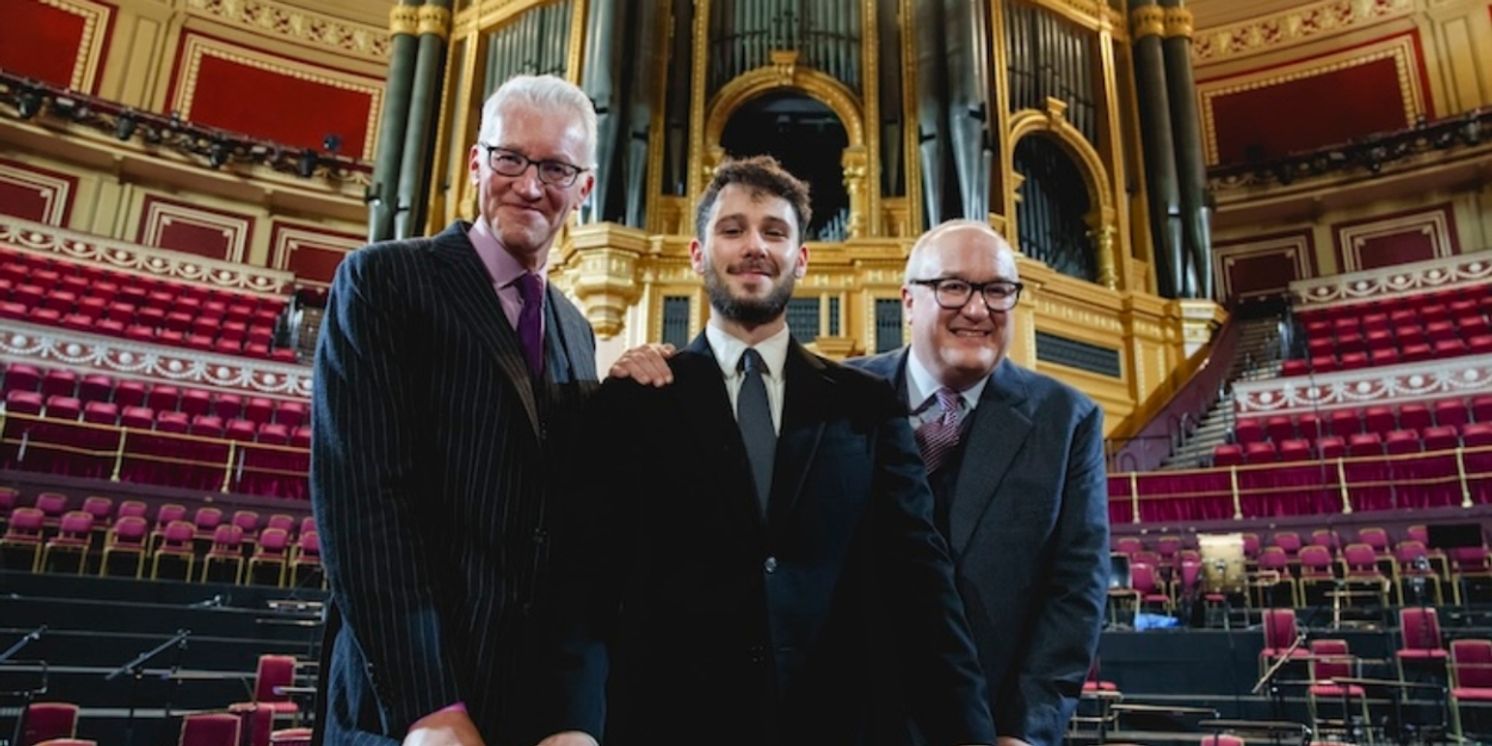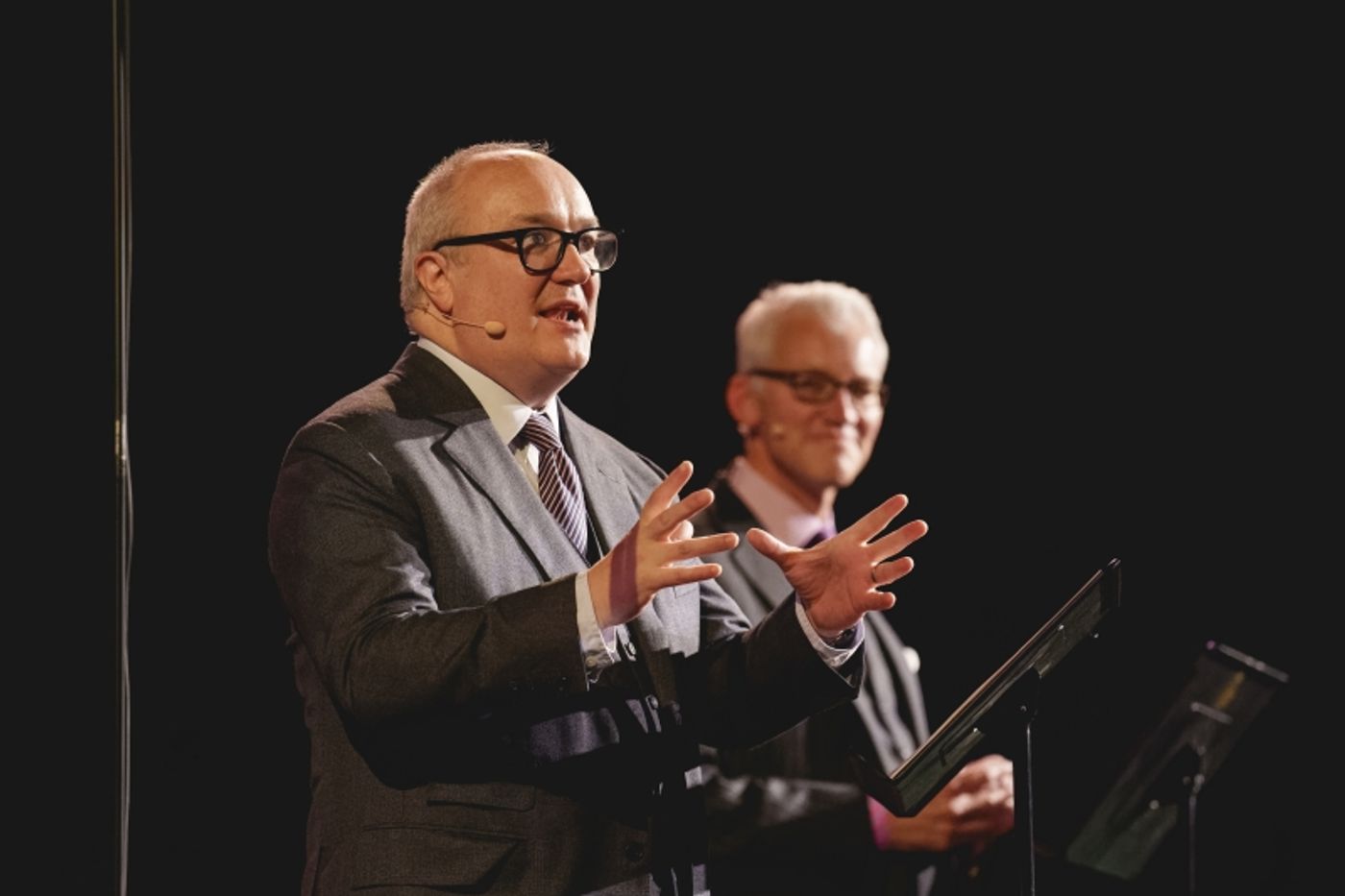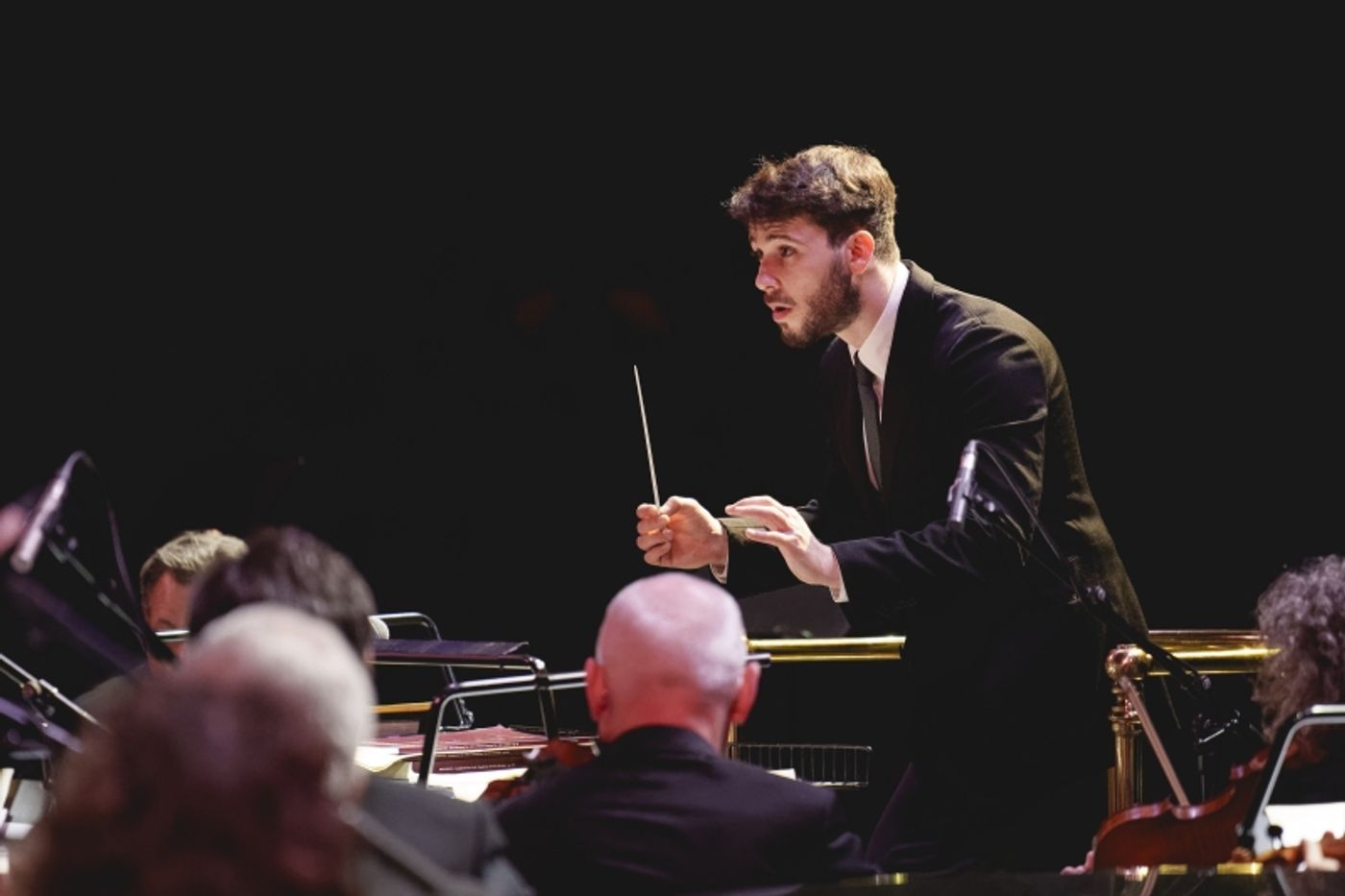Review: THE REST IS HISTORY: MOZART AND BEETHOVEN, Royal Albert Hall
Live history podcast from popular British historians Tom Holland and Dominic Sandbrook, with orchestra and chorus

![]() It's one of the most unlikely moments in the history of entertainment. Two bespectacled 50-something English historians, Tom Holland and Dominic Sandbrook, bound onto the stage of the Royal Albert Hall, like rock stars, to tumultuous applause. Eat your heart out, Mick and Keith!
It's one of the most unlikely moments in the history of entertainment. Two bespectacled 50-something English historians, Tom Holland and Dominic Sandbrook, bound onto the stage of the Royal Albert Hall, like rock stars, to tumultuous applause. Eat your heart out, Mick and Keith!
The second most unlikely moment is top-notch orchestra, Academy of St Martin in the Fields, kicking off with the first movement of Mozart's "Symphony No 25" (orchestral players in a history podcast?). It's from the opening of the film, Amadeus, which the audience recognises. An 80-plus Philharmonia Chorus sits at the back, waiting to perform.
This intellectual-meets-popular tone is spot on for fans (and their bemused partners, of which I am one) of the successful The Rest is History podcast. It's the highest ranked UK history podcast on Spotify and Apple, and in the top 10 of the US charts.
So, how did this mystifying event – the first live history podcast with live orchestra and chorus – in one of the major musical festival halls in the world that seats more than 5,000 come about?
One day, enterprising and talented young conductor Oliver Zeffman – an avid listener of The Rest is History – contacted Holland and Sandbrook with a proposition.
He wanted to stage a live history podcast with facts from Holland and Sandbrook about the lives of Wolfgang Amadeus Mozart and Ludwig van Beethoven, in conjunction with orchestra and chorus playing extracts from some of their better- and lesser-known works. Holland and Sandbrook said yes. And the rest is history.
We know about hot priests (think Fleabag), but now we're into hot historians. These two sizzling historians know how to win over an audience with a beguiling blend of thought-provoking storytelling and cheeky banter. Think of it as Radio 4 meets Radio 3, with a splash of Desert Island Discs thrown in for good measure.
The first half features Mozart. Holland relates the tale of child prodigy rising to the ranks as composer to Emperor Joseph II, and then going "freelance". He jokingly compares Mozart's father touting his young son round Europe to Sandbrook taking his son to poetry competitions. Who fared better, Holland sassily asks. The two hosts tease one another good-naturedly, sometimes including in-jokes ("If you belong to our podcast club you get to hear the second half first").
Holland explains how Mozart was regarded as a prodigy of nature (bringing to mind Rousseau's thoughts on the innocence of childhood), and a product of the Enlightenment. Mozart was vulnerable to geo-political shocks, such as the French Revolution in his later years.

Historical material is followed by musical examples, like Mozart's violin sonata in E minor he wrote in Paris after the death of his mother (brilliantly performed by violinist Stephanie Gonley and Mishka Rushdie Momen on piano).
Equally impressive is bass soloist William Thomas in Mozart's "truth to power" final aria from Figaro. The "Requiem", written just before Mozart's death, features the richness of the generous-sized chorus.
Sandbrook is at the helm for the second half on Beethoven and it starts with the much-loved, first movement of "Symphony No 5". "It's good to start with a banger," we're told, and by now those of us who have never heard the podcast before are eating out of Sandbrook and Holland's capable hands.

According to legend, the only meeting between a 31-year-old Mozart and 17-year-old Beethoven (then an unknown from Bonn), was in Vienna in 1787, two years before the French Revolution. Beethoven plays well, but Mozart says nothing. He then walks to the next room and says to his friends, "Keep an eye on that young man. One day, he will give the world something to think about."
Sandbrook doesn't know if this meeting actually happened, or was it something invented years later by Mozart's biographer. He doesn't always offer us certainty – Sandbrook's catchphrase is "It's complicated" – but he points out it's worth listening to political noise in the background. For instance, Beethoven scratched out the dedication to Napoleon Bonaparte on his "Eroica" symphony, after hearing that Bonaparte had crowned himself Emperor. Beethoven was concerned about the corruption of the principles of the French Revolution.
Sandbrook adds that Beethoven becomes a rock star of sorts – "the artist with a capital A, a brand and a German hero", a model of Romanticism's art being the supreme good.
The evening ends on a high, with full orchestra, soloists and chorus belting out Beethoven's "Symphony No 9". Another "banger" and a hymn to the Enlightenment.
Sandbrook, Holland, Zeffman and the gifted musicians don't miss a beat throughout the entire production. An unlikely experience, but a special one. After the one-night stand at the Royal Albert Hall, The Rest is History is off to America. I guess you could say – and the rest is history.
The Rest is History: Mozart and Beethoven will be touring to Boston, Chicago, New York, Philadelphia, San Francisco, Washington and Los Angeles in November.
Photo credits: Andy Paradise
Reader Reviews
Videos
